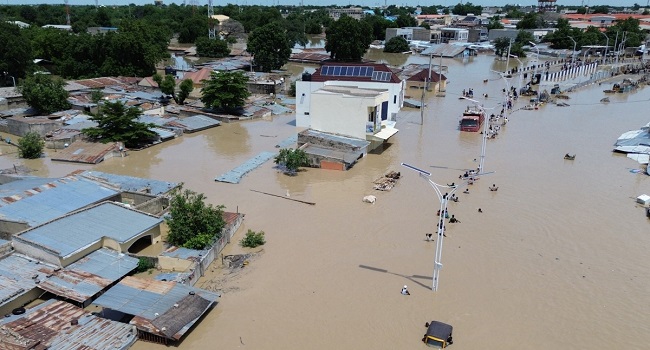The delegation of the European Union (EU) in Chad announced on Wednesday that the union has provided 5.4 million euros ($6 million) in assistance to six West and Central African countries affected by severe floods.
That humanitarian aid was “to help the worst-affected populations following the devastating floods in Chad, Niger, Nigeria, Cameroon, Mali and Burkina Faso,” it said in a statement.
Since the start of the wet season, heavy rainfall has destroyed several areas. As reported by the International Organisation for Migration (IOM), the downpours have led to over 1,500 fatalities, affected four million individuals, and forced 1.2 million more to flee in those six nations and Guinea.
“This year’s floods are unprecedented, a stark reminder of the growing impacts of climate change in our region,” said Sylvia Ekra, IOM Regional Director for West and Central Africa.

The EU has allocated 1.35 million euros to Niger, 1.1 million euros to Nigeria, and 1 million euros each to Chad and Mali. Cameroon will receive 650,000 euros, and Burkina Faso will receive 350,000 euros as part of the EU package.
As stated in the EU press release, these amounts are in addition to the 232 million Euros in humanitarian aid already provided to these countries earlier this year.
The IOM has already provided $3 million in emergency aid to Nigeria, as nearly 650,000 people have fled due to the floods.
According to the latest report from the UN’s Office for the Coordination of Humanitarian Affairs (OCHA), severe flooding in Chad has resulted in 503 deaths and affected approximately 1.7 million people since July.
In Niger, the disaster has forced the postponement of the start of the school year, affecting more than a million people, as per the latest data.
The IOM reports that the unprecedented rainfall in Mali is the most severe since 1967, impacting over 180,000 individuals.
According to the latest OCHA figures, floods in the northern region of Cameroon have caused 20 fatalities and affected more than 230,000 people since late August.
Scientists have consistently warned about the impact of artificial fossil fuel emissions on climate change, which is increasing the likelihood, intensity, and duration of extreme weather events such as torrential rains.


